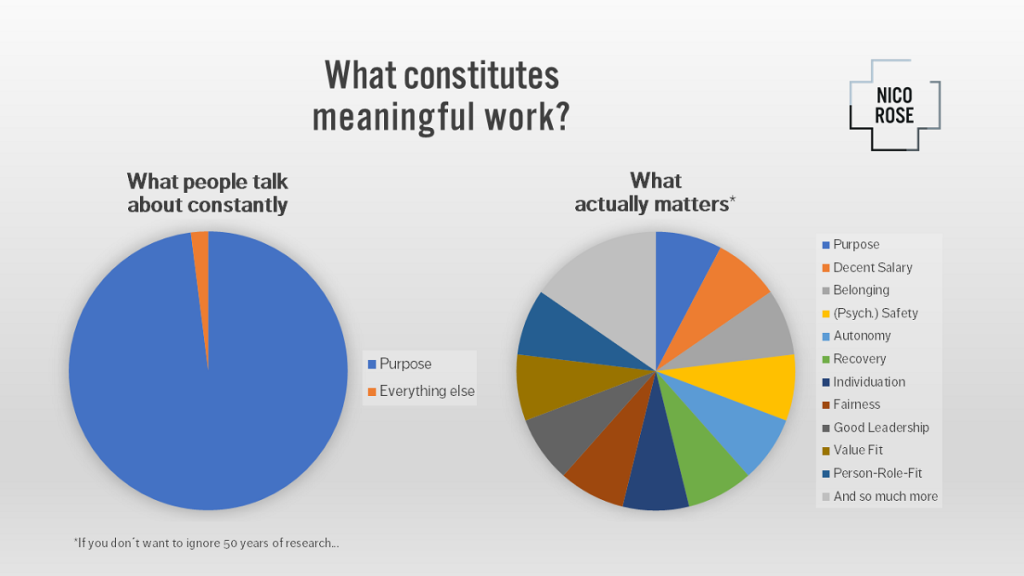Meaningful Work is about much more than just Purpose
Recently, I got a bit tired because of all those conversations that are taking place everywhere about the topic of purpose. While this surely is an important topic I often find that people seem to equate having a purpose in one´s job with experiencing meaningful work per se. And that´s far from the truth.
Yes, having (or living) an authentic purpose at work can be an important “driver” of the experience of meaning in work – but it´s by far not the only aspect that´s important (when looking at extant research). For that reason, I´ve created this infographic. Feel free to copy and share this with anyone who should know.
And, if you really want to take a deep-dive, I encourage you to have a look at the recent academic papers:






